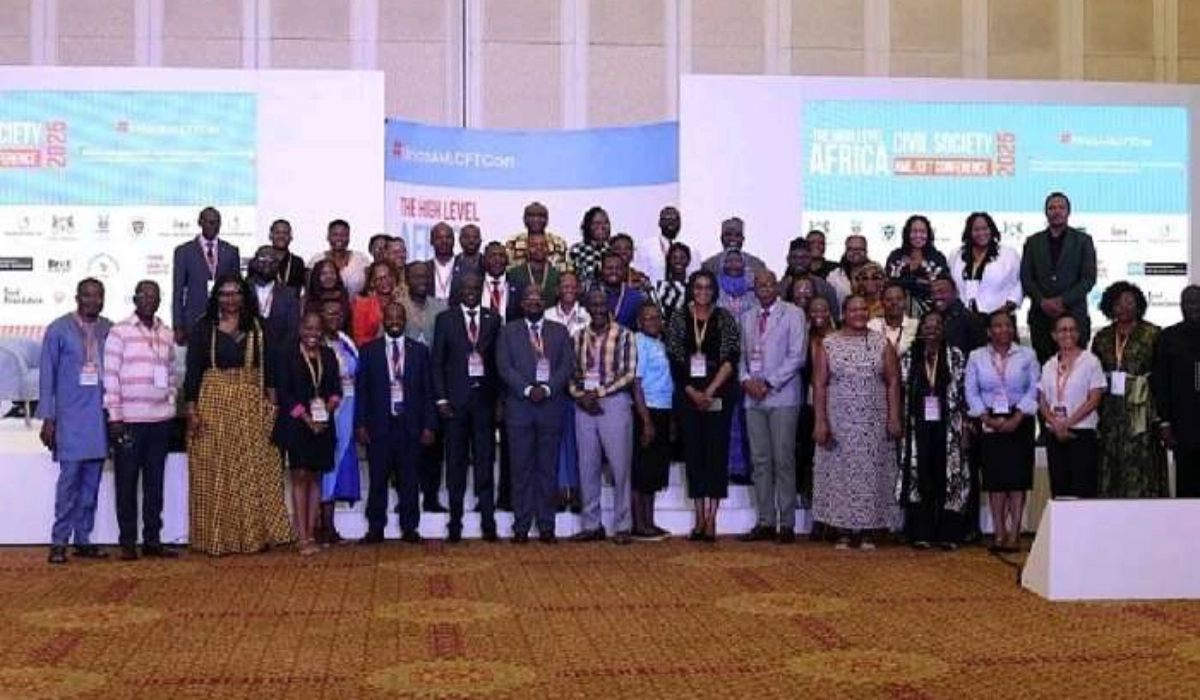President of Botswana, Duma Boko, delivered a significant address at the landmark Africa Civil Society Anti-Money Laundering and Countering the Financing of Terrorism (AML/CFT) Conference, held from October 15 to 17, 2025. Speaking to a wide audience that included policymakers, civil society representatives, judicial authorities, and international partners, President Boko underscored the critical need for self-examination as a cornerstone in the battle against money laundering and financial crimes. His speech was a call to moral courage, transparency, and sustained vigilance in preserving Botswana’s gains and pushing further in the fight against these illicit activities.
Emphasis on Self-Examination and Moral Courage
President Boko challenged both public officials and citizens alike to see the fight against money laundering not as an external battle but as one confronting their own society. He stated that the perpetrators often originate from within the very communities they exploit, diverting public resources for personal enrichment. Quoting a renowned poet, he remarked, “It takes more courage to probe your own soul than it does for a soldier to fight at the periphery,” emphasizing that the first step in combating corruption and financial crimes is honest self-reflection. He urged all actors, including civil society organizations (CSOs), to uphold integrity and to undergo painful but necessary scrutiny to root out illicit activities.
Botswana’s AML/CFT Legal Framework and Institutional Advances
Highlighting Botswana’s robust legislative environment, President Boko praised the country’s Anti-Money Laundering and Countering the Financing of Terrorism laws, which are recognized as strong by regional standards. However, he cautioned that laws alone are insufficient unless supported by capable institutions and leadership driven by ethical principles rather than self-interest. He pointed to recent judicial reforms, including the establishment of specialized courts tasked with expeditiously handling corruption and financial crime cases as a crucial development in Botswana’s AML/CFT landscape.
He acknowledged the country’s successes in governance and reforms but reminded all stakeholders that maintaining integrity and enforcing accountability is more challenging than initially achieving compliance. “Getting there is the easier part. Staying there is the most difficult,” he said, urging continuous transparency and unwavering commitment to accountability to sustain Botswana’s progress.
Collaborative Efforts and Capacity Building
The conference, convened by the Africa Civil Society Initiative in collaboration with Botswana’s Ministry of Labour and Home Affairs and the Institute for Combating Illicit Financial Flows at the University of Botswana, served as a platform to foster collaboration among judiciary members, policymakers, academics, and civil society advocates. The event aligns with ongoing efforts to prepare Botswana for its third-round Mutual Evaluation by the Financial Action Task Force (FATF), scheduled for mid-2027. This evaluation will critically assess the judiciary’s effectiveness in prosecuting financial crimes, imposing sanctions, and recovering illicit assets.
University of Botswana Vice-Chancellor, Professor David Norris, reflected on the institution’s expanding role in financial crime research and training, aligning with Botswana’s broader vision as a regional leader in AML/CFT enforcement and policy development. The University plays a pivotal role in equipping judicial officers and law enforcement with the expertise needed to tackle complex financial crimes effectively.
Addressing Broader Societal Challenges
President Boko framed the AML/CFT struggle within the wider societal context, highlighting the worrying entrenchment of organized crime and illicit financial flows within different social strata. He described African societies as sharply divided, with a materialistic upper class, a vulgarized middle class, and a brutalized lower class—circumstances that create fertile ground for financial criminals embedded in elite circles. He also noted the vulnerability of Non-Profit Organizations (NPOs) and cautioned that both state and non-state actors must subject themselves to rigorous oversight to prevent exploitation as conduits for illicit finance.
Speakers at the conference also touched on the balance needed between effective regulation and preserving civic freedoms, noting concerns over over-regulation stifling humanitarian activities while emphasizing that combating money laundering requires steadfast legal and institutional frameworks.
International and Regional Cooperation
Botswana’s AML efforts have been bolstered by partnerships, including support from the European Union, which has provided technical assistance through training and resource development to address deficiencies in Botswana’s AML/CFT framework. EU representatives praised Botswana’s political will and progress reports from FATF, citing the country’s proactive stance on financial crime prevention as a model in the multilateral arena.
The conference also highlighted the growing role of African civil society in AML/CFT advocacy and oversight, fostering transparency and accountability at national and regional levels. This cooperation is crucial given the transnational nature of money laundering and terrorist financing, necessitating unified action across borders.


